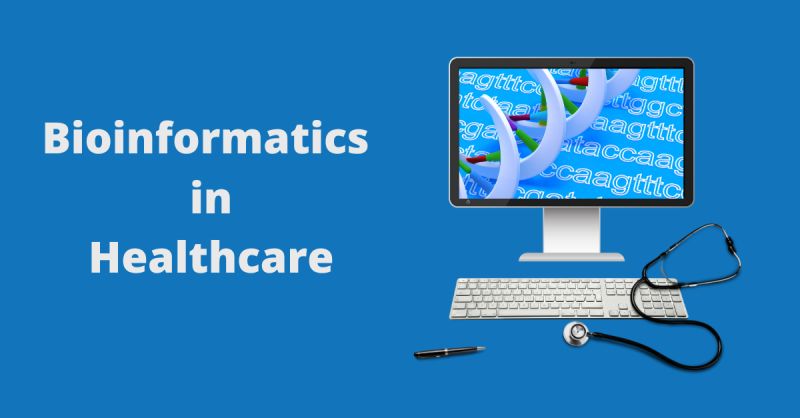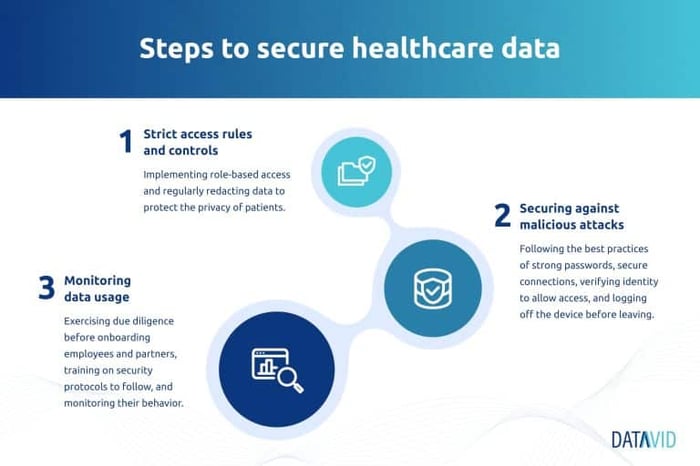Transforming Healthcare: The Power of Bioinformatics
Bioinformatics, the interdisciplinary field that merges biology with computer science, is playing a pivotal role in reshaping the landscape of healthcare. This article explores the diverse applications of bioinformatics in healthcare, highlighting its transformative power in improving diagnostics, treatment strategies, and overall patient care.
Genomic Medicine: Decoding the Blueprint of Life
At the heart of bioinformatics in healthcare lies genomic medicine. Bioinformatics tools analyze vast genomic datasets, providing insights into an individual’s genetic makeup. This wealth of information helps healthcare professionals understand genetic predispositions to diseases, tailor treatment plans, and explore personalized medicine approaches.
Disease Biomarker Discovery: Unveiling Diagnostic Clues
Bioinformatics is revolutionizing the discovery of disease biomarkers, crucial indicators that aid in early diagnosis and monitoring of diseases. Through sophisticated algorithms, bioinformatics identifies patterns in biological data, unveiling potential biomarkers that can serve as diagnostic tools for conditions ranging from cancer to neurodegenerative disorders.
Drug Discovery and Development: A Data-Driven Approach
In the realm of pharmaceuticals, bioinformatics is streamlining drug discovery and development. By analyzing biological data on a massive scale, bioinformatics identifies potential drug targets, predicts drug interactions, and accelerates the identification of candidate compounds. This data-driven approach holds the promise of more efficient and targeted drug development.
Clinical Decision Support Systems: Guiding Healthcare Professionals
Bioinformatics contributes to the development of Clinical Decision Support Systems (CDSS), empowering healthcare professionals with data-driven insights. These systems analyze patient data, medical literature, and clinical knowledge to provide evidence-based recommendations. CDSS enhances diagnostic accuracy, treatment decisions, and overall patient care.
Infectious Disease Surveillance: Early Warning Systems
Bioinformatics plays a crucial role in infectious disease surveillance, offering early warning systems for outbreaks. By analyzing genetic data from pathogens, bioinformatics helps track the spread of infectious diseases, understand their evolution, and guide public health responses. This proactive approach is vital for preventing and managing epidemics.
Big Data Analytics in Healthcare: Extracting Knowledge from Complexity
The sheer volume of healthcare data generated daily is overwhelming, but bioinformatics excels in handling big data. By employing advanced analytics, bioinformatics extracts meaningful insights from complex datasets. This includes patient records, genomic information, and clinical trials data, fostering a deeper understanding of diseases and treatment outcomes.
Personalized Treatment Plans: Tailoring Healthcare Strategies
Bioinformatics enables the creation of personalized treatment plans by integrating diverse datasets. This includes genetic information, patient history, and treatment responses. The result is a tailored approach to healthcare, where interventions are customized based on individual characteristics, optimizing outcomes and minimizing potential side effects.
Challenges and Ethical Considerations: Navigating the Data Landscape
As bioinformatics continues to transform healthcare, challenges and ethical considerations emerge. Safeguarding patient privacy, ensuring data accuracy, and addressing biases in algorithms are critical aspects. Ongoing efforts are essential to establish robust regulations and ethical frameworks that guide the responsible use of bioinformatics in healthcare.
Education and Training: Empowering the Healthcare Workforce
To fully harness the power of bioinformatics, healthcare professionals require education and training. Bioinformatics literacy programs equip clinicians, researchers, and data scientists with the skills to navigate and interpret complex biological data. This education empowers the healthcare workforce to leverage bioinformatics for improved patient outcomes.
Exploring the Future: Bioinformatics as a Catalyst for Innovation
Bioinformatics is a catalyst for innovation in healthcare, driving continuous advancements. As technology evolves and datasets expand, bioinformatics will likely play an even more significant role in uncovering the complexities of diseases and designing precise interventions. The future holds the promise of a data-driven healthcare landscape, guided by the transformative power of bioinformatics.
To learn more about the applications of bioinformatics in healthcare, visit Bioinformatics in Healthcare.
Note: The provided URL is a placeholder and should be replaced with the actual URL of the website or resource you want to link to.


